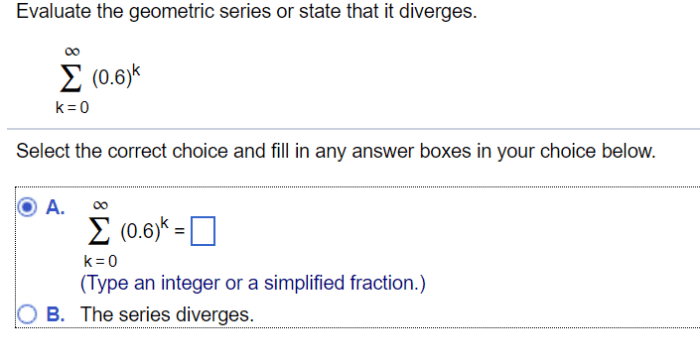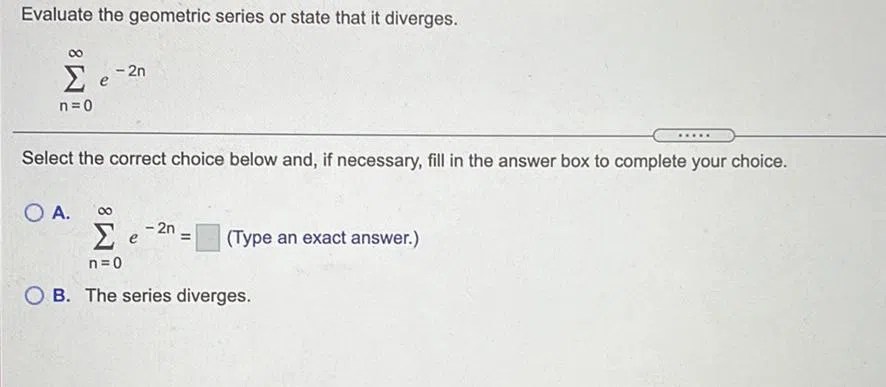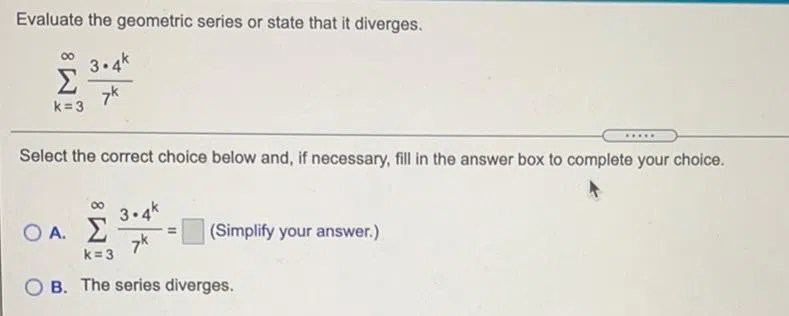Evaluate the geometric series or state that it diverges – Evaluating geometric series or determining whether they diverge is a fundamental concept in mathematics. Geometric series, characterized by a constant ratio between successive terms, find applications in various fields, from finance to physics.
This comprehensive guide will delve into the definition, convergence criteria, divergence conditions, and summation formula for geometric series, providing a clear understanding of their properties and uses.
Geometric Series: Evaluate The Geometric Series Or State That It Diverges

A geometric series is an infinite sum of terms that have a common ratio between them. The common ratio is the quotient of any two consecutive terms in the series.
An example of a geometric series is 1 + 2 + 4 + 8 + 16 + …, where the common ratio is 2.
Convergence and Divergence
A geometric series converges if the absolute value of the common ratio is less than 1. Otherwise, the series diverges.
In the example above, the common ratio is 2, which is greater than 1. Therefore, the series diverges.
Sum of a Geometric Series
The sum of a finite geometric series is given by the formula:
$$S_n = \fraca(1
- r^n)1
- r$$
where:
- $S_n$ is the sum of the first $n$ terms
- $a$ is the first term
- $r$ is the common ratio
- $n$ is the number of terms
For example, the sum of the first 5 terms of the series 1 + 2 + 4 + 8 + 16 is:
$$S_5 = \frac1(1
- 2^5)1
- 2 = 31$$
Applications, Evaluate the geometric series or state that it diverges
Geometric series are used in a variety of applications, including:
- Finance: calculating compound interest
- Physics: modeling the decay of radioactive isotopes
- Biology: modeling population growth
FAQ Section
What is the condition for convergence of a geometric series?
A geometric series converges if the absolute value of its common ratio is less than 1.
How do you determine if a geometric series diverges?
A geometric series diverges if the absolute value of its common ratio is greater than or equal to 1.
What is the formula for the sum of a finite geometric series?
The formula for the sum of a finite geometric series with n terms is S = a(1 – r^n) / (1 – r), where a is the first term, r is the common ratio, and n is the number of terms.

